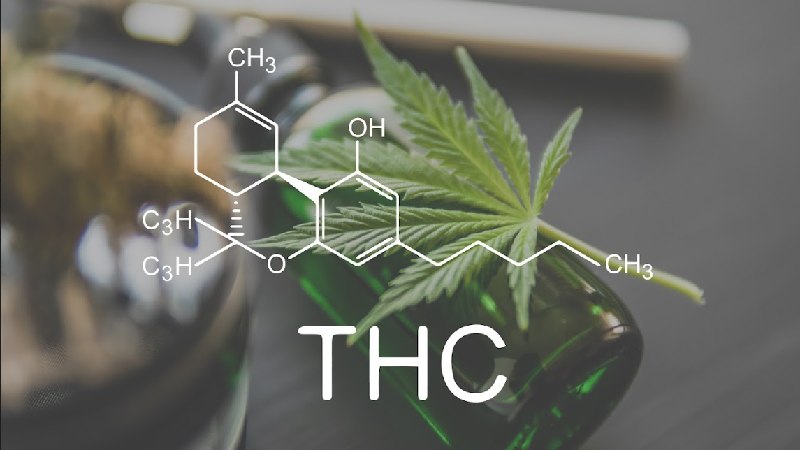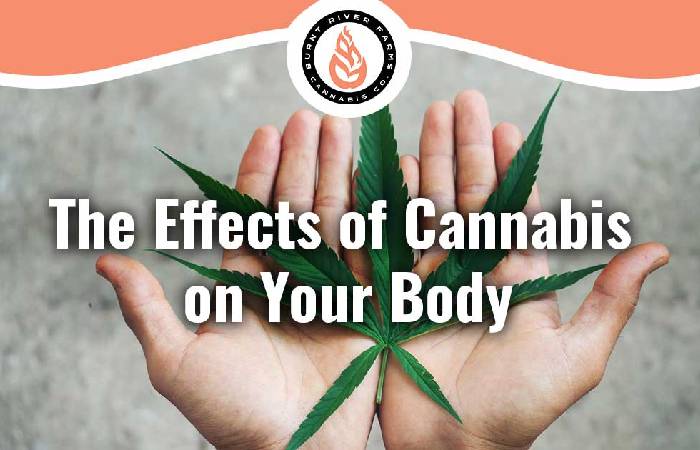5 Things To Know About THC And Its Effects – Cannabis has been around for many years, but it’s only recently that it went through extensive studies for its purported benefits. Among the numerous components in cannabis, tetrahydrocannabinol (THC) along with cannabidiol (CBD) are well-known. THC is one of the cannabinoid molecules in the cannabis plant that’s long been known as the main psychoactive ingredient, which is the substance that causes an individual to feel high.
Here are several important things you need to know about THC and its effects:
How THC Works
As a cannabinoid molecule, THC works by attaching to the cannabinoid receptors in the human body that are present in the brain and nervous system.
The amount of THC in the body will build up over time. With this in mind, the frequency of how a person uses it will determine how long it stays in the body. For example, if you only use THC infrequently, it can linger in the body for one to three days, but has the tendency to persist for a month among chronic users. Remember that THC is stored in the organs and body fat for three to four weeks after it enters the body.
The consumption method is also a factor. The body will take longer to process THC in edibles, indicating that it’ll stay longer in your body than smoking or vaping methods.
Various testing methods are available to detect THC in the body, such as testing the blood, urine, saliva, and hair. Remember that you can’t flush out THC from the body by drinking water or sweating. According to experts, the only way to eliminate THC is to stop the consumption of the substance.

Forms Of THC
THC boasts an array of applications, both recreational and medicinal. THC may help manage depression, anxiety, insomnia, migraines, pain-related conditions, seizures, and post-traumatic stress disorder (PTSD), to name a few.
Generally, THC is typically smoked as marijuana, but other ways are available.
Inhalation may be the swiftest delivery method and produces immediate psychoactive effects, usually in minutes. You can inhale THC via smoking, vaping, or dabbing. If you want to know more about dabbing, or if you’d like to purchase high-quality dabbing devices and accessories, checking out drdabber.com and other similar shops would be a good starting point.
Oral and topical applications are also available on the market. THC comes in the form of edibles, capsules, oils, or tinctures. Although the oral route takes time to produce an effect, it usually lasts longer. As for the topical route, you can apply balms, lotions, salves, oils, and bath salts directly on the skin to produce a localized effect, making them ideal for controlling pain and inflammation.
Sublingual administration is also possible with THC. Today, you can find lozenges, dissolvable strips, or sprays that you can apply under the tongue and which readily dissolve.
Effects Of THC On The Body

After consuming THC, it works by stimulating the brain cells to release dopamine, producing a euphoric effect or a distinctive high it’s known for.
THC can disrupt information processing in the hippocampus, a section of the brain responsible for forming new memories. It’s also capable of inducing hallucinations, altering thinking, and producing delusions.
In most cases, the effects typically last for two hours and eventually kick in 10 to 30 minutes after consumption. Psychomotor impairment can sometimes linger after the perceived high has ended.
THC’s reported side effects typically include anxiety, elation, relaxation, tachycardia, short-term memory issues, sedation, and many more.
Potential Risks Of THC
Although the effects of marijuana make it a popular drug for recreational and medical purposes, it remains one of the most common prohibited drugs in the world since its use is banned in most countries.
Another potential risk of THC use is impaired motor skills. Using cannabis may impair physical skills, such as driving or operating machinery, up to three hours after consumption, so it’s best to avoid use if you’re going to perform these tasks.
Among individuals using medical marijuana, one crucial instruction is to avoid driving until they’ve demonstrated that they can tolerate the effects and perform motor tasks successfully.
Among younger individuals, using marijuana is often linked to issues. Some potential side effects of using THC include a decrease in memory, cognition, and even IQ.
Additionally, using marijuana is likely to result in drug interactions, especially among those currently using medications to manage specific conditions. With this in mind, you must consult a doctor if you consider using medical marijuana soon.
Medical Applications
For thousands of years, marijuana has had a variety of medical applications. As many states are now legalizing medical marijuana, many are well aware of its benefits in managing various health conditions.
When used properly, THC may bring about additional medical benefits. In one study involving mice as the test subjects, small doses of THC may help improve memory.
If a person wants to use medical marijuana, one of the requirements is a written recommendation from a licensed doctor in states that allow marijuana use. Depending on your state’s requirements, you should be diagnosed with a health condition that qualifies for medical marijuana use. On the one hand, some states require a medical marijuana card that allows you to purchase one at a dispensary.
Final Thoughts
Over the years, marijuana has played a role in managing various ailments. As many realize its benefits, cannabis is growing in popularity for recreational and medical use. Depending on your specific needs, knowing everything about cannabis, especially THC, can help you decide whether or not using it would benefit your overall health.


